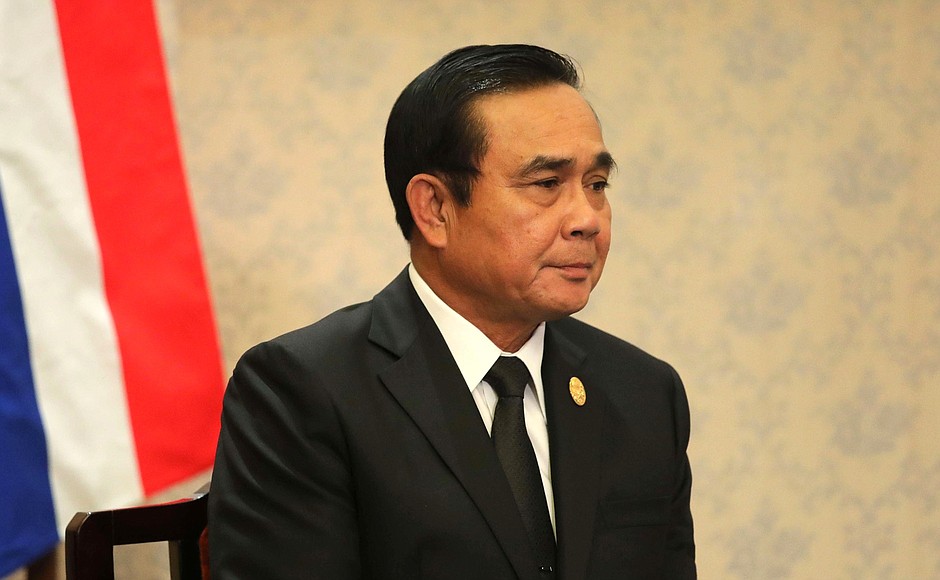
Photo of Thai Prime Minister Prayuth Chan-o-cha
Thousands in Thailand joined in a student-led protest pushing for the government’s resignation, defying a government ban on large gatherings due to Covid-19 concerns.
This demonstration, with an estimated total of 2,500 protestors gathered on Bangkok’s Democracy Monument, has become one of the largest street demonstrations since a 2014 military coup.
The protesters pushed three objectives:
(1) the dissolution of parliament,
(2) the end to harassment of government critics and
(3) amendments to the constitution, which many argue ensured the victory of former Thai Army Chief, Prayuth Chan-o-cha’s, victory in last years elections.
Prayuth Chan-o-cha’s Controversy
As army chief, Prayut Chan-o-cha first took power when he led a coup to overthrow the elected government in 2014. After a widely denounces unfair election in 2019, Chan-o-cha was elected prime minister.
Chan-o-cha’s campaign pushed a vision of traditional Thai culture and loyalty to King Vajiralongkorn. His deeply conservative views and leadership has often angered the more progressive elements in Thai society, with many protesting his unfairly appointed leadership.
When asked about past demonstrations Chan-o-cha told Time Magazine, “We have been rather lenient. If we allowed them to demonstrate freely, it might become too difficult to move forward to democracy.”
Several cabinet members have resigned on Thursday over internal disputes, while under Chan-o-cha’s leadership.
Covid-19 Impact on Protest
Protests against Chan-o-cha’s government had been quickly increasing but slowed down when emergency law was invoked over coronavirus concerns.
These social distancing and quarantine measures have helped limit the spread of the virus; however, many say the government continues to use these measures as a political weapon.
Police were on standby and set up barriers around the monument to prevent crowds gathering. Police loudspeakers also repeated warnings that the protest was considered an illegal gathering.
Read more the Guardian, the Times and, Reuters.

